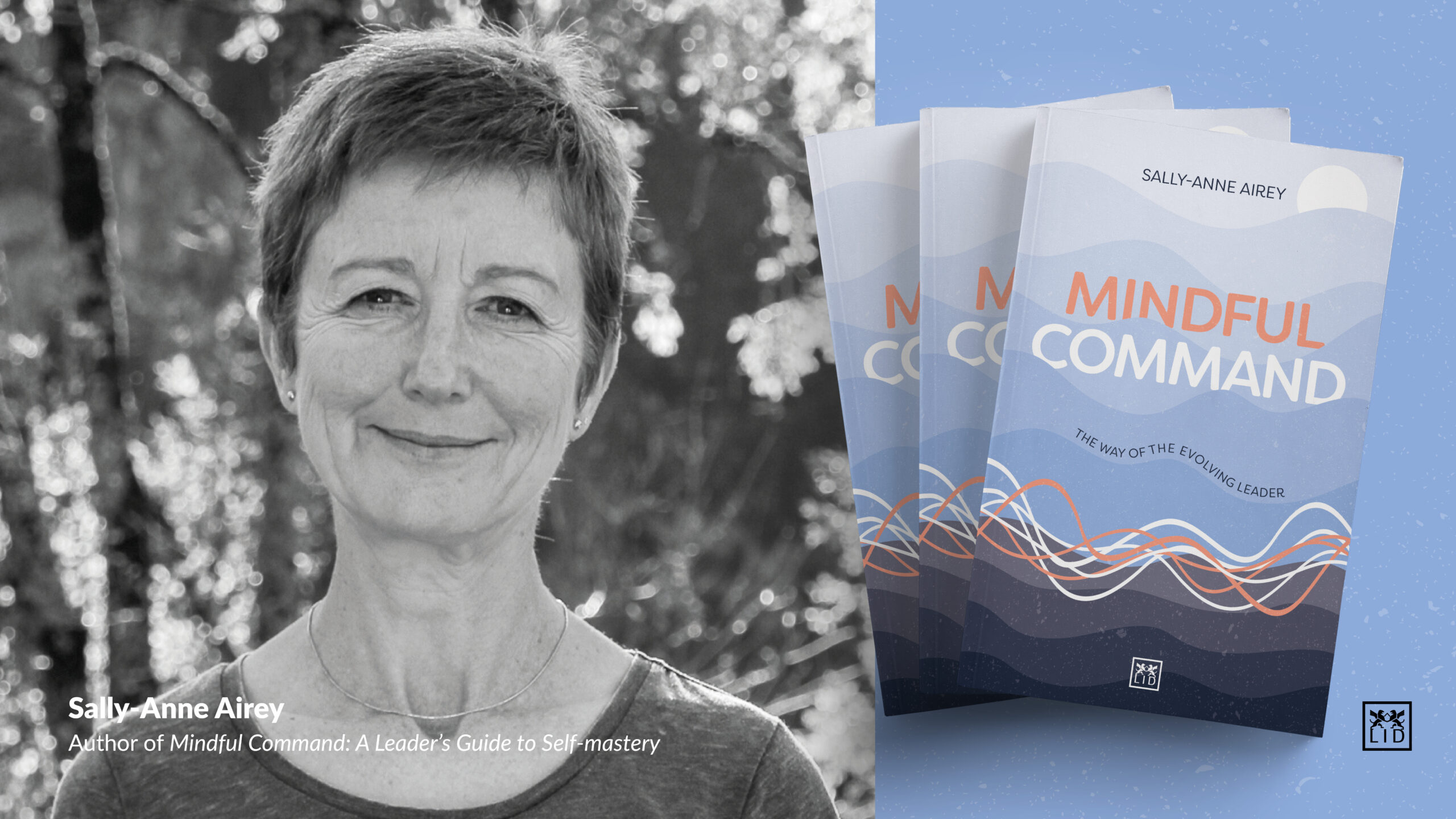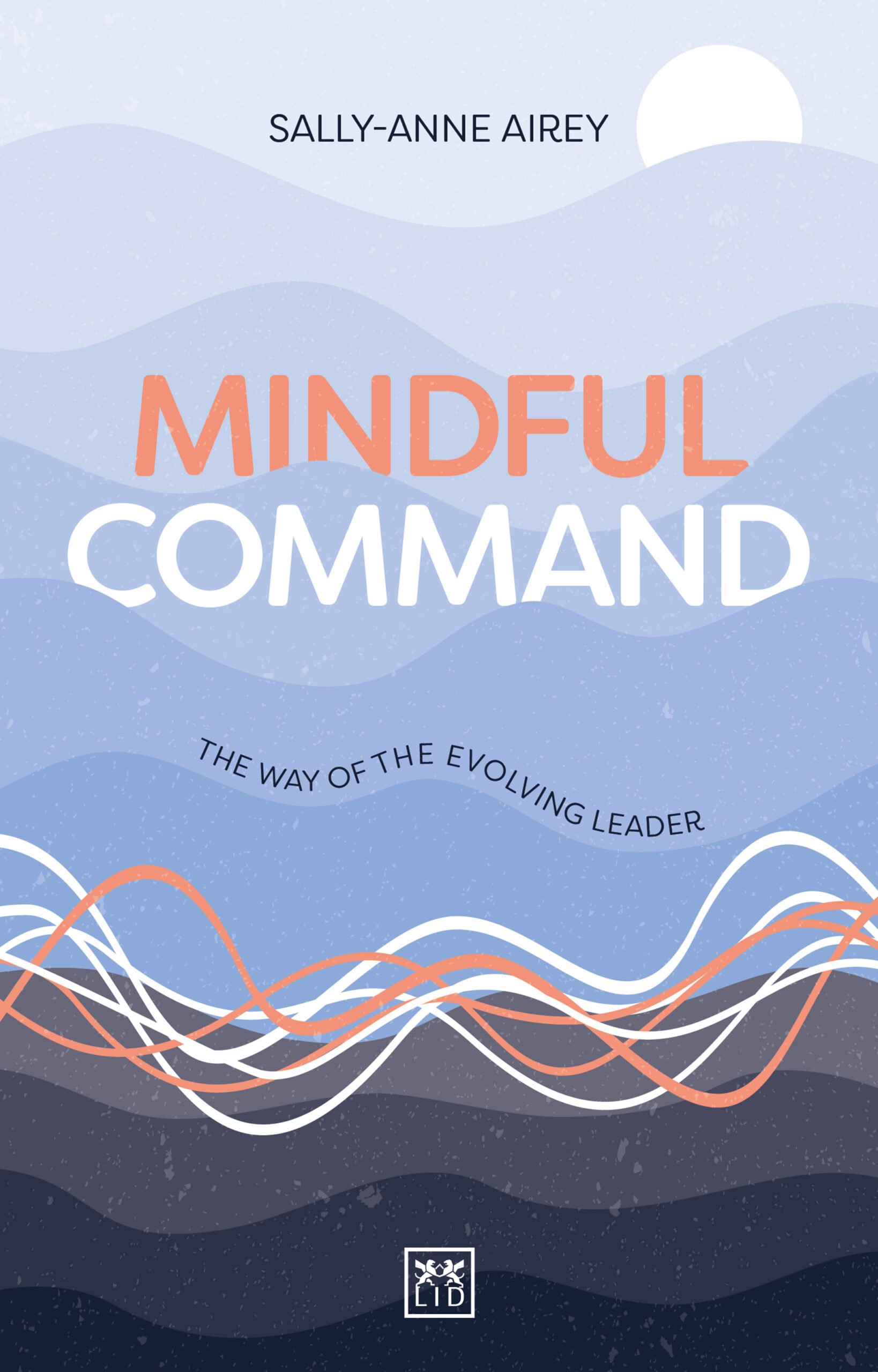|
From Royal Navy Commander to Mindful Command: Introducing Sally-Anne Airey
From Royal Navy Commander to Mindful Command: Introducing Sally-Anne Airey

By Guest Contributor Sally-Anne Airey
As a Royal Navy Commander who was the Navy’s first serving mother and as a leadership coach, Sally-Anne has seen all kinds of leadership – good and bad. She concluded long ago that the key differentiator between good and bad leadership is not what you do, but how you are. Motivating people to give off their best is about being your best – consistently, over time. Her leadership framework, Mindful Command, is her response to this universal challenge.
It’s June 2009. I’m sitting under an oak tree in southwest France. Opposite me is an Italian monk. In 14 simple words, he has just made everything startlingly clear.
“Keep to your practice. When the times comes, you will know what to do.”
I was there to learn more about mindfulness, as practised by one of its greatest masters, Zen Master Thich Nhat Hanh. I was on a week-long retreat at the Plum Village international monastic practice centre which he’d founded in France in 1982. Four days earlier, I’d been listening to the same Italian monk teaching us about possibilities for peace. At the end of the talk, something was bothering me, and I asked to speak with him. “Not now”, he said. I left, feeling confused.
Meanwhile, the retreat continued. Up at 5am, bed by 10pm. Periods of sitting and walking meditation during the day, different types of community work and more wise teaching.
The day before I was due to leave, the same monk approached me for the first time since our brief exchange. “Would you like to ask your question now?” He suggested we go and sit beneath the tree.
There, in that peaceful spot, looking out over acres of rolling fields, I noticed that the question had lost its power. I asked it anyway. “Look”, I said. “I subscribe to peace. But what if there were a circumstance in which protecting my family meant taking lethal action against someone else? What’s the right thing to do then?”
“Do you want to harm someone now?” he asked.
“No, not now, but what if…?”
And that’s when he spoke the 14 words that changed my life forever more.
“Keep to your practice. When the times comes, you will know what to do.”
In that week at Plum Village, I touched the joy of simply being present. I was clear, calm, and free of judgement. This was distinctly different to my usual way, where my thoughts and feelings would routinely take me forward into the future or back to the past: scenario planning things that may never happen, replaying things that already had, or struggling to accept what was happening now. A push and pull that kept me on constant alert.
I liked my new feeling of clarity and calm. I vowed to keep it.
This is where my work – the work I do today – began. It evolved into Mindful Command. Along the way I realised that our real work as leaders is discovering who we are, being clear about what matters, and cultivating the courage to do the right thing in the right way at the right time.
° ° ° ° ° °
In 1981, after university, I had joined the Royal Navy to become an officer at a time when women didn’t have the right to serve at sea nor even to continue serving once they were pregnant. Courageous, fair leadership was part of the Navy’s DNA, but equality of opportunity for men and women, for which I advocated vigorously, came only ten years later. When I left the Navy in 2004, I was a Commander and the Navy’s first serving mother.
Over those 23 years, as well as leading teams of my own in diverse management roles, I worked with many leaders – some great, some not-so-great. I realised the key difference between them was not so much what they did, but how they did it, and how they motivated their people to give off their best.
After the Navy, I lived and worked for eight years in Ukraine and Russia, as business manager of a rapidly expanding international school in Kyiv, and then, by chance, as a leadership coach. I was asked to help a French manager in a German company and discovered a talent that became my vocation. I also began a daily meditation practice, which is now in its 15th year.
My Royal Navy career was all about doing. Successive bosses rewarded my ability to “achieve more in one day than most people do in a week”. To everyone looking on, I seemed to be thriving.
But I wasn’t, not really. I was overworked, overwrought, and often overwhelmed. Rushing to catch up, but not quite sure what I was rushing to catch up with.
Impossibly stretched, I was juggling too many balls. And with no space for myself, I would struggle at times to maintain my perspective. Instead of focusing on what really mattered, I would try to do “it all”. When I couldn’t, I would judge myself harshly.
I know I’m not alone in this. Many of the leaders I met feel like I did then. They not only want to lead well; they also want to be a good parent, partner and friend. Perhaps you can relate?
In my experience, to lead others well, and be the parent, partner and friend we want to be, we must take the time to understand how we relate to ourselves, to others, and to our environment, and decide how we want to evolve. In other words, we must lead ourselves first. This is a commitment to the tough inner work necessary to be our best.
° ° ° ° ° °
Why Mindful Command?
The unusual juxtaposition of apparently contradictory ideas inherent in Mindful Command stems from my own experience of leadership and mindfulness.
The command in Mindful Command speaks to what I learned about leadership in my naval career. Naval leadership is centred on the military concepts of commander’s intent and mission command. Commander’s intent is a leader’s clear statement of the desired outcome of an operation, including its purpose, objectives and the resources required. This can be at any level. Mission command combines the commander’s intent with delegated freedom of action, initiative, responsiveness, and flexibility. The why and the what are clarified up front, and the people responsible for its execution are empowered to decide on the how.
The mindful in Mindful Command comes from my own mindfulness practice and relates to a leader’s level of awareness, presence, and impact.
There’s nothing military or directive about Mindful Command. Separately, mission command and mindfulness stand alone. Together, they help you cultivate the capacity to show up, whatever the circumstance, as your clear, calm, centred self, confident of doing the right thing.
In designing and developing the Mindful Command framework, my intention was to offer leaders a holistic foundation for clear, courageous, compassionate leadership – represented simply here:

Held by the mountain, and with space at its core, Mindful Command offers you a way of showing up – i.e., being present – which is natural to you and generates a positive impact. You build a combination of foundational skills that support your capacity to create space for yourself and hold space for others.[1]
Balanced awareness amplifies clear purpose; clear purpose fuels fearless compassion; fearless compassion channels balanced awareness and clear purpose into action; inner stability enables them all to evolve. These are all things you can learn to do and together they support your capacity to generate a “safe haven” within you that is akin to a state of inner peace. You see things as they are. You’re clear about what matters. You hold your ground, you speak the truth, and you have the courage to do what is right.
As a Royal Navy Commander, these are capacities I wish I’d developed more of. Now, as a mindful commander, I’m still working on it.
———————————————————————————————————————————————
[1] To hold space is to sit with someone and listen non-judgementally to the precious, unfiltered truth they’re trying to express. You offer no unsolicited advice, and you stay curious. You let them feel what it’s like to be heard with a genuine desire to understand.
ABOUT THE AUTHOR
Suggested Reading
 Airey’s career in the Royal Navy spanned 23 years and during this time she observed all kinds of leadership, good and bad. Observing these leaders and the outcomes they achieved gave her huge insight into what works. In Mindful Command she presents her learnings and arguments as an international business leader, leadership coach and mindfulness teacher. Her reflections on what constitutes the essence of real leadership skill are current and valuable, and the book presents a simple, all-encompassing framework that enables leaders everywhere to grow.
Airey’s career in the Royal Navy spanned 23 years and during this time she observed all kinds of leadership, good and bad. Observing these leaders and the outcomes they achieved gave her huge insight into what works. In Mindful Command she presents her learnings and arguments as an international business leader, leadership coach and mindfulness teacher. Her reflections on what constitutes the essence of real leadership skill are current and valuable, and the book presents a simple, all-encompassing framework that enables leaders everywhere to grow.

